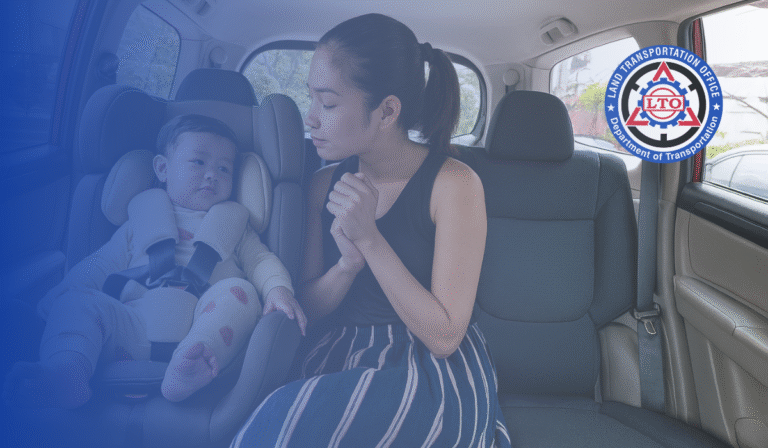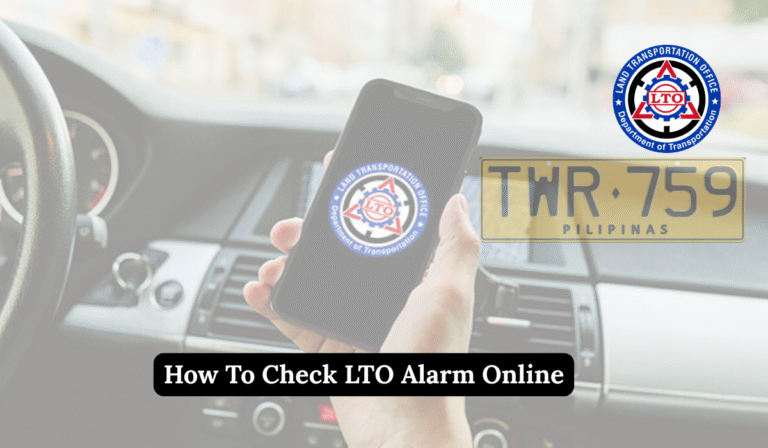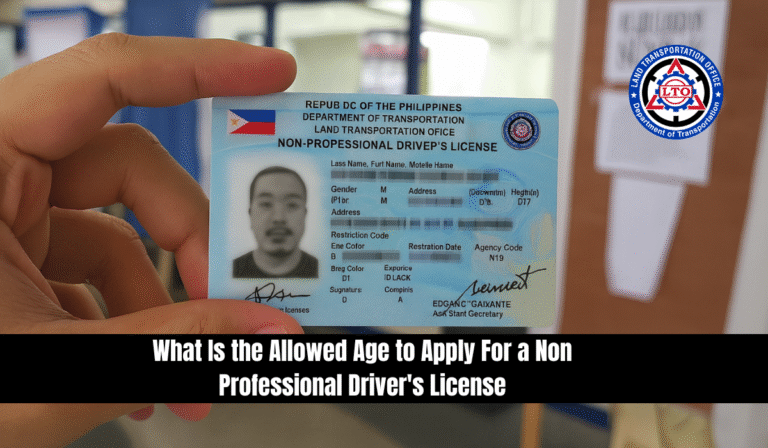The Administration Is Pushing For Modernization – Sustainability And Mobility

The Administration Is Pushing For Modernization – Sustainability And Mobility. Under the leadership of President Ferdinand R. Marcos Jr. and the Department of Transportation (DOTr) Secretary Vince Dizon, the Philippine government is taking significant strides towards modernizing its operations and improving the country’s mobility infrastructure. One of the key efforts in this mission is the acquisition of 23 state-of-the-art hybrid multi-purpose vehicles (MPVs) by the Land Transportation Office (LTO). This move highlights the government’s dedication to sustainability, reducing carbon emissions, and fostering fuel efficiency.
This article will delve into the details of the procurement, the broader goals behind the move, and how the LTO is aligning with the administration’s vision for a more sustainable, efficient, and modern public service.
The Role of the LTO in Modernization
The Land Transportation Office (LTO) plays a crucial role in the Philippine government’s transportation sector, ensuring the safety, convenience, and well-being of the general public on the roads. As part of the country’s modernization drive, the LTO is embracing technology and sustainability. The procurement of hybrid MPVs is just one example of how the agency is leading the charge in achieving these objectives.
Hybrid Multi-Purpose Vehicles: A Step Towards Sustainability
In a strategic move to meet the requirements of the Electric Vehicle Industry Development Act (EVIDA), the LTO has successfully procured 23 hybrid MPVs through the Procurement Service–Department of Budget and Management (PS-DBM). This procurement is an essential part of the government’s goal to transition at least 5% of its fleet to electric or hybrid vehicles. These vehicles will serve multiple purposes across the country, helping streamline the operations of the LTO while also contributing to reduced emissions and fuel consumption.
The hybrid MPVs, which were delivered in three separate batches from July 2 to July 4, 2025, provide a significant boost to the LTO operational efficiency. The vehicles were formally handed over to LTO Executive Director Atty. Greg G. Pua Jr. by PS-DBM Executive Director Genmaries S. Entredicho-Caong and Deputy Executive Director Philip Josef T. Vera Cruz. This event marks the beginning of the LTO’s transition to more sustainable modes of transport.
Why Hybrid Vehicles?
The choice of hybrid vehicles is rooted in the need for fuel efficiency and sustainability. Hybrid vehicles, which combine an internal combustion engine with an electric motor, are more efficient in terms of fuel consumption and produce fewer harmful emissions than conventional vehicles. This makes them a perfect choice for government fleets, as they align with the EVIDA IRR mandate to reduce the environmental impact of government operations.
By adopting these hybrid MPVs, the LTO is not only contributing to the reduction of the country’s carbon footprint but also setting an example for other government agencies and private organizations to follow. Moreover, the government’s focus on hybrid vehicles serves as a stepping stone towards eventually integrating fully electric vehicles into the fleet, thus fully embracing sustainable and future-proof technologies.
Key Stakeholders and Their Role
The handover ceremony, which was attended by several key stakeholders, underscored the collaborative effort that made this procurement possible. LTO Chief, Assistant Secretary Atty. Vigor D. Mendoza II, played a pivotal role in securing the hybrid MPVs for the agency. His leadership has been instrumental in advancing the LTO’s operations and modernization efforts.
In addition to the LTO leadership, officials from the PS-DBM, including Executive Director Genmaries S. Entredicho Caong and Deputy Executive Director Philip Josef T. Vera Cruz, were present to facilitate the turnover. The procurement of the hybrid MPVs was part of the common-use supplies and equipment (CSE) offered through the government eMarketplace, a platform designed to streamline and simplify the procurement process for government entities.
Also attending the event were LTO officials, including Operations Division Chief Kathleen Deanna G. Salayog, Administrative Division Chief Ms. Louella V. Mutia, and Director Francis Ray A. Almora. Their presence highlighted the LTO’s commitment to fully embracing the modernization process and enhancing its operations with new technology and sustainable solutions.
A Focus on Fuel Efficiency and Reduced Emissions
The introduction of hybrid vehicles into the government fleet is a clear indication of the country’s push toward green mobility. The hybrid MPVs support fuel efficiency by using a combination of gasoline and electric power, which significantly reduces fuel consumption compared to traditional vehicles. Additionally, these vehicles emit fewer pollutants, helping improve air quality and contribute to the country’s broader environmental goals.
These benefits are not just limited to the reduction of operational costs and environmental impact. The integration of these vehicles into the government’s transportation systems reflects a long-term vision of transitioning to cleaner and more efficient public transport solutions.
The EVIDA IRR Mandate and Compliance
The Electric Vehicle Industry Development Act (EVIDA) aims to promote the use of electric vehicles across various sectors in the Philippines. The Act requires that at least 5% of the government’s fleet be composed of electric or hybrid vehicles. This legislation is part of the government’s efforts to reduce reliance on fossil fuels and decrease greenhouse gas emissions, while also promoting the development of the electric vehicle industry within the country.
The hybrid MPVs procured by the LTO are fully in compliance with the EVIDA IRR mandate, contributing to the government’s target of transitioning a portion of its fleet to electric or hybrid vehicles. This procurement marks a significant milestone in the government’s broader push for sustainability and reduced environmental impact.
A Sustainable Future for Government Transport
This procurement of hybrid MPVs signifies more than just the acquisition of vehicles; it represents the government’s ongoing commitment to sustainability, modernization, and efficiency. By incorporating environmentally-friendly technologies into government operations, the administration is laying the groundwork for a greener, more sustainable future for the Philippines.
The LTO investment in hybrid vehicles is a clear reflection of the administration’s push for modernization. The procurement is not just about improving the efficiency of the LTO’s operations but also ensuring that government transport solutions are aligned with global best practices for sustainability and mobility.
FAQs About The Administration Is Pushing For Modernization
What are the benefits of hybrid MPVs for the LTO?
Ans: Hybrid MPVs offer improved fuel efficiency and reduced emissions compared to traditional vehicles. These vehicles contribute to the LTO’s operational efficiency while aligning with the government’s goal of sustainability and environmental responsibility.
How does the EVIDA IRR mandate affect government fleets?
Ans: The EVIDA IRR mandates that at least 5% of the government’s fleet must be electric or hybrid vehicles. This requirement is part of the government’s broader goal to reduce greenhouse gas emissions and promote green mobility.
What is the government’s long-term plan for hybrid and electric vehicles?
Ans: The long-term goal is to transition a significant portion of the government fleet to fully electric or hybrid vehicles. This move is aimed at reducing the country’s reliance on fossil fuels, lowering carbon emissions, and promoting clean energy solutions in public transportation.
Conclusion
The acquisition of hybrid vehicles by the LTO is a significant step toward realizing the Philippine government goals of modernization, sustainability, and improved mobility. This procurement not only supports the LTO’s operational needs but also contributes to the country’s broader objectives of reducing fuel consumption, lowering emissions, and transitioning to cleaner energy sources in public transportation.






